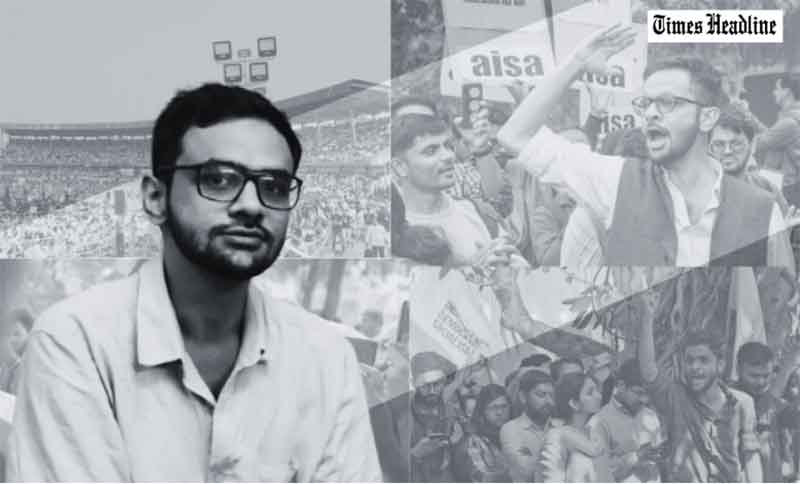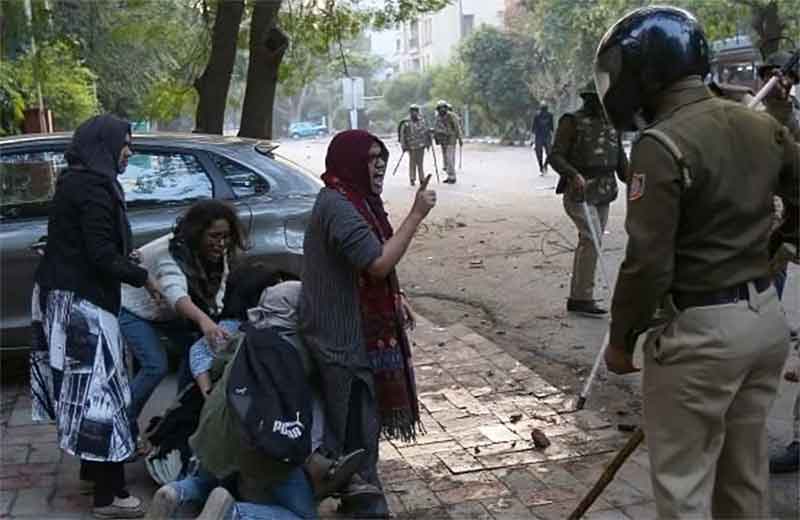
Much has been said about the controversial Citizenship Amendment Act, 2019 while protestors all over India demanded to withdraw the law claiming that it is discriminatory. The matter is pending before the Supreme Court but in this piece, it is added that the amendments made over the years, in the citizenship law, have changed the very notion and discourse of citizenship by altering the context of `rights to have rights’. The amended provisions alter the very nature of relationship that exists between a citizen and the state. The principle of jus soli (citizenship by birth) is being replaced by jus sanguinis (citizenship by bloodline). At the same time, the law reduces the scope of human rights while eradicating a person’s entitlements to renders the status of all persons as stateless. It empowers the bureaucratic state machinery to determine as to who is a citizen. Therefore, it is essential to reconsider the citizenship matrix to necessarily protect human rights of citizens.
Exceptional Concept of `Rights to Have Rights’
Hannah Ardent, a political theorist, in her essay titled Rights of Man: What are They?” published in 1949, which was later incorporated in theOrigin of Totalitarianism’ in 1951, claimed that the universal’ andinalienable’ rights mentioned in the Universal Declaration of Human Rights are grounded on the principles of national and territorial sovereignty of the nation state and therefore are inherently contradictory. Ardent reasoned that to enjoy human rights, individuals must be more than mere human beings. They must acquire the membership of the nation states. The crux of her argument was that to enjoy rights such as right to education, to work, to vote, to health care and so on, an individual must belong to an organized political community. The concept of `rights to have rights’ therefore, involves preconditions which necessarily are premised on recognition of human beings as citizens and the reciprocal duties of the state to protect the rights of citizens.
According to this conception, though human rights are intrinsic to very existence of a being but the basic principle behind all human rights instruments assume that the State is a basic guarantor of rights to its citizens, therefore, once the state declares a person as stateless, then it does not perform its duty to guarantee rights to that person. In such a situation, any concept of rights becomes meaningless. Statelessness, in itself tantamount to loss of nationality status and loss of rights. Statelessness deprives a person of citizenship rights as well as loss of human rights.
In India, this phenomenon is right now happening in one of the poorest state of Assam, whereas per the implementation of Assam Accord under the monitoring by the Supreme Court, in December 2019, a list was made public where 1.9 million citizens were declared as `Doubtful citizens’ and have been lodged in the detention centers rendering them stateless. Stateless persons are deprived the rights which they enjoy as citizens. National Register of Citizen made in Assam erodes the basic rights guaranteed under the UDHR and other international treaties and conventions by declaring these people as doubtful citizens. The human right apparatus is collapsed in this situation when the rights of millions of human beings could not be protected as they cease to belong to any nation. This is happening when India has ratified various human rights instruments. And now, the state is making the NRC applicable to entire country.
In Indian Democracy, Praja is not Subservient
In India, in pre-colonial era, the hierarchical kingdom rule existed which assumed that kings or emperors or feudal lords as authoritarian rulers whereas those ruled or praja were the subjects and were at the receiving end. The authority of the king is derived from shastras. The Vedas and the Dharamshastras establish the divinity and superiority of kings and hail them as protectors and punishers.
During the colonial period, Britishers treated the people of this country as subjects to be ruled, the subservient population to who they owe no obligations. Imperial rulers, saw India as collection of various groups or by fixed and permanent identities. Indians were not considered as free agents but their identities were constructed through groups such as Brahmins, Dalits or Muslims and this thinking cast a lasting imprint on political thought.
When India attained freedom, the people of the country adopted and enacted the Constitution on 26th November 1949, which in its Preamble declares the nation as sovereign, democratic, socialist, republic and secular. This form of governance declares end of hierarchical autocratic regime replacing it with democratic style of functioning which implies rule of people whereby people elect the government periodically. In independent India, theoretically, people as citizens no longer remained as recipient of doles or mercy by the kings or the Imperial rulers but are granted equal rights in the process of governance.
The Constitution of India granted fundamental rights to the citizens and onus is laid on the state to ensure that the rights of each and every citizen are being protected. The state is visualized as a Welfare state by the constitution makers and in Part IV of the Constitution, a comprehensive guideline is laid down that aims to create a social, economic and political path for the modern state. According to this model of governance, the onus is on the state to guarantee the rights of individuals while citizens are the raison-d’etre for the existence of the state.
Hence, individual’s rights as abstract constructions are deeply rooted in nation’s sovereignty. Also, collective rights of self-governance are based on the intangible construction of human beings as a part of geographical territory or dominion. In this conception, the rights of any individual are protected by the larger social order of which s/he is a part as well as a member of broader socio-political community. This form of governance sees individuals as citizens through the prism of social relation with the state.
Citizenship Law in India and Human Rights
Besides the provisions mentioned in the constitution, the Indian Citizenship Act of 1955 elaborately defines as to who is a citizen and the manner in which one may acquire citizenship or could terminates or renounces it. In December 2019, Citizenship Amendment Act was passed which seemingly eases the path of nationality for persecuted Non-Muslim minorities in Pakistan, Afghanistan and Bangladesh. These provisions were enacted despite of the fact that in October 2018, the government deported 7 Rohingya Muslim refugees and the Supreme Court refused to intervene in the matter. The amendments are claimed to be flawed as these are based on preferential treatment, are arbitrary and discriminatory thus causing various problems. A nationwide peaceful protest against this law continued for more than hundred days and was withdrawn after the lockdown was imposed in wake of COVID 19 in March 2020.
However, a closer look at the matrix of the citizenship law shows that it is not only in 2019 but over the years, this is made complicated and chaotic by the bureaucratic machinery. In 2003, when the BJP government was in power, the concept of illegal immigrant’ is added. Also, a notification was issued on 10<sup>th</sup> December 2003 by the Government of India to make <a href="http://censusindia.gov.in/2011-Act&Rules/notifications/citizenship_rules2003.pdf">Citizenship (Registration of Citizens and Issue of National Identity Card) Rules, 2003</a>. As per section 7 of these Rules, it is held that it will be the duty of every head of the family and individuals to act as informantsto assist the officials responsible for the preparation of National Register of Indian Citizens to get himself registered in the Local register of Indian Citizen during the period of initialization’. Section 8 seeks to appoint Registrars at various levels – District, Taluk and Local, and empowered them for `determination of citizenship status of any person or persons’.
This exercise of amendment in the law which began in 2003 eradicated the citizenship entitlements of all persons, irrespective of their background and rendered everyone as stateless. This implies that every person is seen as a Doubtful citizen’. These amendments authorized the bureaucratic state to determine as to who is entitled to enjoy citizenship. The <a href="https://thewire.in/government/common-thread-govt-plan-citizenship-question">onus of proof</a> is on individuals as the rules allowed the officers appointed by the state to determine the citizenship of an individual on the basis of documents s/he could furnish. These rules were not challenged or revoked by the successive UPA regime which came into power in 2004 General Elections. These amendments altered the discourse of citizenship by eroding the concept ofrights to have rights’.
Human rights lost significance as soon as an individual loses his or her political context. These amendments tilted the balance of power in favour of state whereby state is considered as superior which is now empowered to decide the process by which it may choose who can be a citizen. The individuals, hence, become dependent on the mercy of the state to enjoy basic legal protection which they relish as citizens. The amendments excluded and eroded the rights of citizens leaving them to the status of “human and nothing but human” as elaborated by Ardent. The concept of inalienability of human rights is weakened as apart from state, no other institution or authority exists which can guarantee rights. This is a process of dehumanization where ‘modern instruments such as state authority, bureaucratic efficiency, a technology of death and a rational design consisting of abstract plan for the better world’, all are used to otherize and exclude people.
Meanwhile, the government also launched the National Population Register (NPR) in 2010 under Sub rule (4) of the Citizenship Rules 2003 which again is against the grain of the law. This is apart from the provision of the Census Act of 1948 that NPR is initiated with the object to `create a comprehensive database of every individual resident in the country. It says that the database would contain demographic as well as biometric particulars’. Despite of the fact that biometrics of citizens are being collected of more than 1 billion persons covering 93 percent population despite of concerns being raised about various aspects including coercion and data security under the provisions of the Aadhaar (Targeted Delivery of Financial and Other Subsidies, Benefits and Services) Act, 2016, yet, NPR was launched by the then Congress government which created chaos of laws and policies in relation to collection of data and linking it up with citizenship.
On 31st July 2019, the Ministry of Home Affairs issued a notification in the Gazette of India to update the NPR in pursuance of Citizenship Rules, 2003. The sets of questions framed were completely different from the previous exercise of NPR which focus on birth of parents. These were later suspended in the wake of lockdown issued in response to COVID 19 in March 2020.
However, the arbitrary amendments made in the Citizenship laws in 2003 and subsequently in 2019, and mixing it up with the process of collecting population data eliminate the right of the citizens and alter the basic constitutional framework within which the citizen-state relationship is contextualized.. These amendments assault the democratic fabric of the country and attack the civil liberties of individuals. Currently, the matter is pending before the Supreme Court where the United Nations Human Rights Chief has moved an intervention application before the apex court against CAA.
CAA, NRC and NPR Matrix Alters the Citizen-State Relationship
The citizenship regime at the time of independence is based on the principle of jus soli (citizenship by birth), hence, those who are born in India are considered as citizen irrespective of their sex, religion, caste, class or other variables. Nonetheless, the disorganized matrix of CAA, NRC and NPR reduces the identity of an individual as a `subject’ rather than perceiving a citizen as an equal participants in the democratic governance. It replaces the principle of jus soli (citizenship by birth) with jus sanguinis (citizenship by bloodline). Citizenship, under this amended disorganized matrix, is not decided by the birth but by factors as parentage, religion and other variables. Therefore, a person is required to show his or her documents regarding lineage such as parent’s birth certificate, their place of birth, documents relating to ancestral property and so on to prove that s/he is a citizen. Also, experience in Assam shows that the process is not simple and is open to different interpretations further adding to the existing chaos.
The breakdown of relationship between the state and a citizen results in citizens being rendered stateless `subjects’ excluded from the domain of matrix of rights of citizenship. No authority or institution can help them secure their human rights as the nation state is the only juridical authority that can effectively acknowledge and protect human rights. World’s history has witnessed the situations where status of millions of people was rendered as stateless and they were forced to face brutalities. When the states arbitrarily decide to eradicate citizenship rights, and become tormentors and violators of rights of its citizens, the concept of human rights lost its meaning.
Citizenship is Essential To Enjoy Basic Human Rights
The freedom fighters as well as the Constitution makers have imagined the idea of India as a participatory democracy which is secular, equal and just and where every citizen is vested with the rights and the state is duty bound to protect those rights. Amendments to the matrix of the citizenship law and mixing it up with the process of data collection about population are against those collective dreams and vision and alter the nature of socio-political fabric of the country, therefore these are deemed as unconstitutional and undesirable by majority of those who protested. Further, the exercise of NCR in Assam has created a havoc. Making it applicable to the entire nation is not feasible, neither in terms of resources, nor in terms of application of human rights framework, or within the matrix of constitutional rights. In this light, it is therefore essential to reconsider the amendments made to the Citizenship matrix.
Universal Declaration of Human Rights despites its formal language presumes human beings primarily as a member of ordered political community. An individual who is being debarred from her political context is not considered as a citizen and therefore s/he is not in position to claim his or her human rights. Human rights are therefore dependent on the context of the citizenship or belongingness to a nation state and do not visualize humanity as a core of it. Human rights bestow human dignity, are inalienable and should remain valid till the existence of human being on Earth. Any dependence on the nation states defy the basic crux of the human rights and makes the framework redundant. According to Ardent, this paradox can be resolved by recognizing the juridical-political precondition of rights to have rights’, for protection of human rights. She <a href="https://www.jstor.org/stable/27644535?seq=1">wrote</a>, “The rights to have rights, or the rights of every individual to belong to humanity should be guaranteed by humanity itself”. Therefore, it is the concept of humanity that has to be evoked to protect therights to have rights’ of every person and any amendments to the citizenship laws must consider the ambit of citizen-state relationship through the prism of human rights framework.
The author is an advocate and a researcher practicing and advocating for human rights, gender and governance issues. She is associated with human rights and women’s organizations and has written several books, research papers and articles. Her recent book is titled as Women and Domestic Violence in India: A Quest for Justice. She is a co-author of The Founding Mothers: 15 Women Architects of Indian Constitution. She is publishing regularly. Some of her writings are available here and here.
SIGN UP FOR COUNTERCURRENTS DAILY NEWS LETTER















































